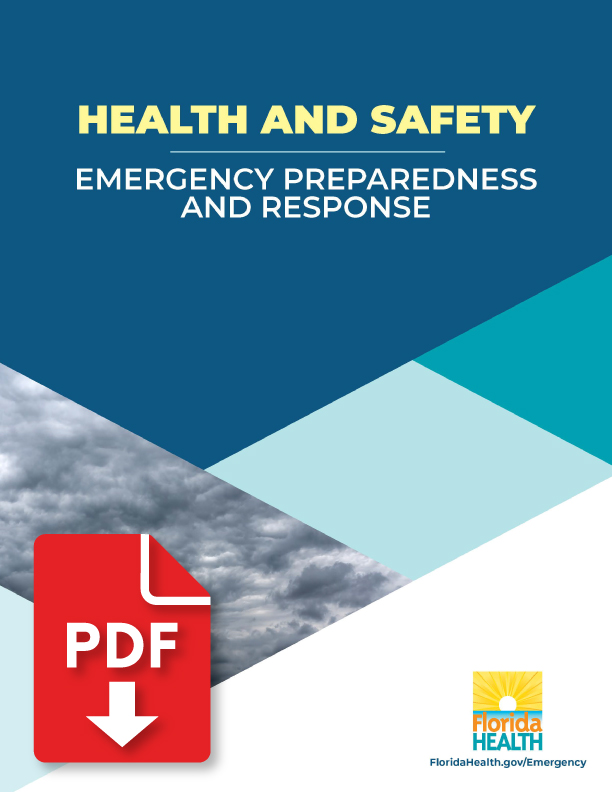It's a New Day in Public Health.
The Florida Department of Health works to protect, promote, and improve the health of all people in Florida through integrated state, county, and community efforts.
Disaster Relief
FL Dept of Health in Pinellas - Epidemiology
The Florida Department of Health is dedicated to helping our community and citizens during the recovery from Hurricane Helene and Hurricane Milton.
Mental Health in Adults and Children
Anxiety, depression, panic attacks, and high levels of stress are normal reactions to a disaster or traumatic event. While we recover, make sure to use healthy ways to cope with the feelings you may be experiencing.
Impacts from a disaster extend beyond what you can see, they can create a great amount of stress and anxiety for children. They may not fully understand what is going on, so it’s important to help them cope with any stress they may have.
Resources
- Call 211
- Thousands of caring experts are available to help, 24/7. Calls are confidential and can be anonymous.
- Call 988
- Provides 24/7, free and confidential support for people in distress.
- Hope for Healing
- Connects Floridians to local resources for assistance with mental health and substance abuse services.
- Disaster Distress Helpline, call or text 800-985-5990
- Provides 24/7 toll-free, multilingual disaster crisis counseling for anyone experiencing emotional distress related to disasters.
Mold Clean-up and Indoor Air Quality
As Floridians clean and repair storm-damaged homes and buildings, the Florida Department of Health recommends taking action to avoid poor indoor air quality.
Moisture that enters buildings from leaks or flooding accelerates mold growth. Mold can cause disease, trigger allergic reactions, and continue to damage materials long after the storm. Failure to control moisture and mold can present short and long-term health risks.
Wildlife and Pet Safety
Severe weather can displace pets and wildlife and any animals lost, frightened, or hurt – may be more likely to bite.
Follow these guidelines to ensure that you and your family are safe when encountering displaced pets and wildlife.
Clean-up Safety
Tetanus, commonly known as lockjaw, is a serious bacterial infection that affects the nervous system leading to painful muscle contractions. It can affect your ability to breath and may be life-threatening.
Every person involved in clean-up efforts should make sure their tetanus vaccination is current. Adults need a booster shot every 10 years to maintain protection.
Vibrio Vulnificus
Vibrio vulnificus is a bacterium that usually lives in warm, brackish sea water. These bacteria typically grow faster during warmer months and flooding, may increased bacteria levels.
Additional Resources
Florida Department of Emergency Management
Federal Emergency Management Agency, 800-621-FEMA (3362)
(FEMA) assistance is available to Pinellas County residents who experienced damages/losses. Disaster assistance may include financial help for temporary lodging, basic home repairs, and other disaster-caused expenses.
Hope Florida 833-GET-HOPE (833-438-4673)
Hope Florida is available to assist residents with unmet needs.




Connect with DOH